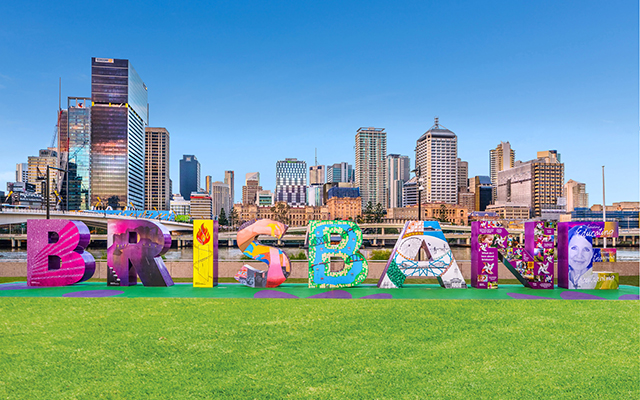The new-gen chatty chatbot is helping OTAs to better engage customers for eventual sale conversation, while making content creation easier for travel and tourism marketers
While still in its early stages of development, having launched only in November 2022, the artificial-intelligence chatbot ChatGPT has lured major OTAs with its use potential.
Developed by OpenAI, ChatGPT is able to take prompts – or questions – from human users and sweep through vast data on the Internet to generate a human-like and comprehensive response. Its capability is regarded as a major step up from the chatbots the world has been relying on, which are only able to respond with structured answers to a limited set of keywords and instructions.

So appealing is ChatGPT that, according to Similarweb, it gained 100 million monthly active users in January, just two months after its launch. Its developer, OpenAI, also became one of the 50 most visited websites in the world, found Digital-adoption.com.
Making sense of what that adoption rate meant, Time magazine wrote that Instagram took 2.5 years to reach 100 million users while TikTok got there in nine months.
Among the companies that are riding the ChatGPT wave are Trip.com and Expedia Group.
In February, Trip.com unveiled TripGen, a chatbot that is integrated with the OpenAI API and designed to provide travellers with live assistance through artificial intelligence (AI) technology, enabling users to receive tailored travel routes, itineraries and booking advice in real time on the Trip.com platform.
TripGen supports English, Japanese, Korean and traditional Chinese, with more languages to be added in the future. Work is also being done to allow users to book directly with Trip.com after TripGen searches, and to integrate with the new WhisperAPI for speech-to-text transcription and translation.
Amy Wei, senior product director at Trip.com Group, told TTG Asia: “Users can make more complex requests, such as suggestions for a romantic holiday. Business travellers (with packed schedules) can easily enquire about one- or two-day tours. This is an efficient way of finding out and narrowing down information for time-starved travellers.”
So far, response to TripGen has been good, according to Wei. User numbers have been doubling every day since it launched, with users asking four to five questions during their searches.
In March, Expedia Group introduced a plugin for ChatGPT users to bring their travel conversations to life. Powered by Expedia Group’s 70 petabytes of travel data, the Expedia pluggin allows ChatGPT users to get real recommendations on how to get to a desired destination, where to stay, and what to see and do.
Barely a month later, Expedia Group deepened its ChatGPT use by bringing a ChatGPT trip planning capability into its app. The new function allows Expedia members to have an open-ended conversation in the Expedia app for recommendations on destination activities and tourism products, and have hotels discussed in the conversation saved for future booking. Expedia members can choose dates, check availability, and add on other trip components, such as flights, cars, or activities.
The conversational trip planning beta experience is rolling out globally in English on the Expedia iOS app.
Kurt Weinsheimer, chief solutions officer at Sojern, a marketing specialist for hotels, attractions, and destinations, said these ChatGPT integrations are “exciting and inevitable”.
“Travel experts (right away) saw the potential of ChatGPT to offer an end-to-end user experience. It can help in the (travel) planning stage… and also tell that story when (travellers) are done with their trip,” he told TTG Asia.
“ChatGPT, Natural Language Processing (NPL) and AI require… content. The algorithms that power them need a ton of data in order to maximise their potential. Hence, having ChatGPT partner with a travel company like Kayak Group or Expedia Group makes a ton of sense. Now, a travel enquiry on ChatGPT will not just give you broad information and ideas, but very specific options that can be pulled from Kayak’s data and lead the customer to real-time rates, availability and a booking function,” he explained.
A boost for marketing
The conversational nature of ChatGPT’s output has not escaped the eyes of travel and tourism marketers.
Weinsheimer said: “In the history of tech, we know that innovations have taken away some roles only to replace them with new ones. Calculators did not take away math jobs; they allowed mathematicians to advance to higher levels of computing and engineering. So, we see NLP providing an opportunity to enhance content creation. It will be good for good writers and make marketers even better at their job.”
Ewan Cluckie, founder of Thailand-based travel operator and distributor, Tripseed, has “done some quite extensive testing with ChatGPT”.
Cluckie sees potential use cases for it within the travel industry, particularly in content creation. “It can speed up copywriting tasks and rewrites, and help to lay basic structure,” he remarked.
“I have also found it can be surprisingly competent at the localisation of existing content for different language markets,” he added.
Joleena Seah, managing director – Southeast Asia with leading regional publicity agency, GHC Asia, told TTG Asia that her company has been experimenting with the possible uses of ChatGPT and alternatives, like YouChat and Bing. Her team recently chose ChatGPT to trial a questionnaire that sought to draw media representatives’ opinion on a hospitality brand.
Seah said: “ChatGPT and the likes can be useful for our line of work. We could use it to start a draft for itinerary suggestions, drafting general factsheets and FAQs for our clients (destinations, hotels or brands), researching ideas to promote destinations, and understanding guest sentiments, and more, before we embellish the content. Basically, ChatGPT can help us to reduce time spent on research so that we can add more value to our clients’ press materials.”
However, Weinsheimer emphasised that travel and tourism companies should not limit their vision to just ChatGPT. Rather, they need to think about their investment in big data and AI in general.
He said: “It is a challenging time for marketers today. A recent study shows that over 70 per cent of consumers want a personalised experience, and almost the same percentage expressed concerns about how their data is being used.”
Balancing personalised experience in a permission-based world can be attained through AI, he opined. Sojern uses AI to predict the likelihood of travellers acting in a certain way or wanting certain experiences.
“You need models to go through billions of data points to come up with the right matches. You also need to understand that within those billions of travellers, there will be those that don’t want to get advertisements,” he said.
With AI, Sojern is able to fine-tune the audience, and provide the opt-in audience with the right messages at the right time for the maximum impact.
“The same way that we see ChatGPT is leveraging conversational data to write personalised experiences, big data and AI can be used to create personalised marketing and advertising. AI is here to stay, and it is up to companies to leverage it to minimise the number of monotonous tasks they have to deal with, and free them up to do more interesting, revenue-generating work,”said Weinsheimer.

Limitations
As promising as ChatGPT is, corporate users are clear about the chatbot’s limitations – the system relies on data on the Internet and, for now, its knowledge is limited to 2021 content. And with it accessing an assortment of published data online, there is also the possibility of it pulling inaccurate information.
People with subject matter expertise continue to remain important even as ChatGPT comes into the picture, asserted Weinsheimer.
“ChatGPT is sometimes accurate and other times not quite, but it is always 100 per cent confident. And that’s where you need human experts to ascertain accuracy,” he said.
Seah said: “There are also limitations when a job requires senior leadership’s personal insights, brand messages and new announcements. Most of our work involve hotel launches and new brand initiatives, which render AI chatbots ineffective because these information are not yet available on the Internet.”
Thiam Wei Toh, founder and chief storyteller of Indie Singapore Tours, has trialled chatbots for customer service and the creation of itineraries, but found that “even (OpenAI’s latest) GPT-4 is still a bit off from being able to be properly harnessed”.
Thiam is looking into other AI tools like Midjourney, Stable Diffusion and Copy.ai to to help with content generation and productivity.
Cluckie agrees that ChatGPT and the likes “will not be replacing any jobs anytime soon”.
“We’ve being doing more extensive testing on the localisation of content for different markets but even this still requires a human editor. The inaccuracies in content produced by ChatGPT, and the generic blandness of its responses, are still far too prevalent for it to be used as much more than a writing aid,” said Cluckie.
He added that the system’s reliance on training data prevents it from generating original thought.
“Innovation and originality is, for now at least, still safely within the biological domain. In the context of travel, this limitation means that tools like ChatGPT inherently perpetuate issues such as overtourism unless specifically prompted otherwise, and even then, they are fundamentally limited to what is already provided to them in their training data,” he said.
To address potential inaccuracies, Trip.com is working to embed booking links into TripGen, so that the existence of system-recommended products can be verified, shared Wei.
On Expedia’s part, its collaboration with OpenAI is currently in the beta testing phase, allowing it to rapidly evolve the experience based on members’ interaction.
“It’s also important to remember that while many measures have been taken to limit inaccurate results and inappropriate responses, at times the experience may not work exactly as expected. Feedback from both our employees and all those using the experience will be continually evaluated to make sure responses meet our standards,” commented Rathi Murthy, CTO, Expedia Group.
To travel companies eager to weave ChatGPT and similar AI functions into their system, Murthy has a word of advice: “Travel is a complex industry with lots of tech debt, so before companies can integrate with technologies like ChatGPT, they need to make sure the technological fundamentals of their platform are sound, and their data quality is high.”
It would be a long-term investment. She said: “For AI to truly deliver on its potential, including commercially, it requires large quantities of high-quality data and a highly skilled team; it must be viewed as an essential part of the infrastructure to run a business, and it needs time. AI is not productive or efficient on day one – it takes time to get the data, train, evolve and scale up the models. It’s an ongoing capability and there’s not really an end in terms of value that it can bring to a business.”
















